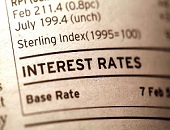The emerging scandal around the setting of LIBOR (the London Interbank Offered Rate) prompted GARP (the Global Association of Risk Professionals) to convene a panel of three experts to inform its members about the background and implications of the LIBOR fraud. On December 20, 2012, the first presenter at the GARP webinar was Amy Poster, Strategic Adviser at Iron Harbor Capital Management. She described the background and key facts.
Calling it the “$800 trillion scandal,” Poster said that these events touched many derivatives markets, various consumer debt instruments such as credit card loans, and 100 percent of the sub-prime market. Other notable impacts are on TARP and municipal bonds.
Poster’s LIBOR scandal timeline—slide 9 in the presentation whose link is given below—is an excellent summary and is worth the presentation download alone. “The FSA had evidence of LIBOR manipulation at Barclays dating back to 2005,” she said, but the Financial Services Authority (FSA) did not launch an investigation until 2010.
Why was there such inaction from the regulators? Poster pointed out there was a 5-year time bar that made it more difficult to prosecute fraud. By then, the regulator was knee-deep in the financial crisis. Questioned further by the audience about this, Poster said that, in Washington everyone was trying to address the meltdown and, although LIBOR was “on the list,” it was not pre-eminent. “The economy was having a heart attack and LIBOR was just a stomach ache,” was the analogy she drew.
She described fines and projected fines. To date, the UBS fine of $1.5 billion has been the largest. Clients will likely have to seek reimbursement through class-action suits, she noted.
After the enforcement activities, an investigation committee was struck by the FSA. Poster outlined the set of five reforms recommended by the Wheatley Review of LIBOR:
1) Oversight would be transferred from the British Bankers’ Association (BBA) to the FSA
2) Banks would have to submit relevant trade data to support rates
3) Staff reporting daily rates must be approved by the FSA (i.e., have background checks)
4) There would be jail time and other criminal sanctions for violators
5) Australian, Canadian, New Zealand dollars, and Swedish and Danish Krone would be eliminated from the roster of currencies
There is some talk of replacing LIBOR with overnight indexed swaps or the general collateral repo index. The latter is seen as more reliable, because it is published daily, is secured by collateral, and the majority of its loans goes through a central clearinghouse. However, “a replacement is unlikely,” said Poster, “because LIBOR is too embedded in the world-wide financial system.”
In response to a question from the audience, Poster said that, going forward, LIBOR is not expected to increase due to the scandal. She expects the scandal to have less effect on LIBOR than the current market conditions of the underlying currencies, or the resolution of the fiscal cliff. ª
Go to Part 2. ª
The webinar presentation slides can be found at: http://event.on24.com/r.htm?e=547384&s=1&k=36B76CF8E61746B331EA26D40448235C

